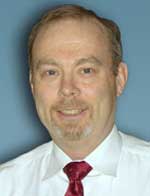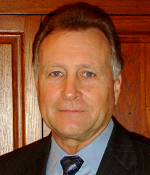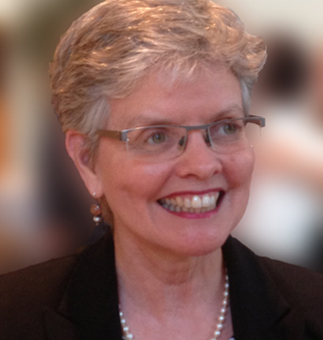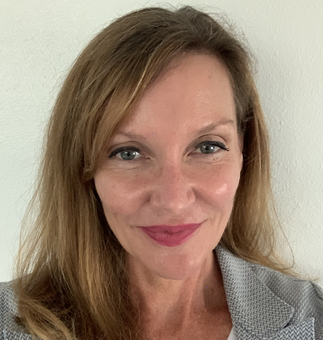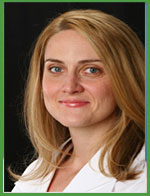Paul J. Clear, Ph.D. |
|
|
|
Dr. Paul J. Clear is a licensed psychologist having earned his Ph.D. and Master of Arts in clinical psychology from the University of Houston and his Bachelor of Liberal Arts from Harvard University. Dr. Clear received his training and clinical experience at the Psychology Research and Services Center at the University of Houston, the Michael E. DeBakey Veterans Affairs Medical Center in Houston, and the Tarnow Center. At the Psychology Research and Services Center, he worked with children, teens, and their families as well as adults. Presenting problems included depression, posttraumatic stress disorder (PTSD), and interpersonal relationship issues. At the Veterans Affairs Medical Center, Dr. Clear treated veterans experiencing depression and anxiety, PTSD, schizophrenia and other psychoses, and adjustment issues related to medical problems. At the Tarnow Center, Dr. Clear spends much of his clinical time working with teenage boys and girls. Although a number of these teens receive treatment related to Attention-Deficit Hyperactivity Disorder (ADHD), Dr. Clear is experienced in dealing with many issues that adolescents encounter during middle and high school years (e.g., motivational issues, disruptive behaviors, and anger management). Dr. Clear offers specialized diagnostic testing for this population, and he readily consults with other Tarnow Center clinicians in order to design effective individualized treatment plans. His approach to therapy includes working in close collaboration with parents to aid in the treatment of their teen. During the summer, Dr. Clear conducts a four-week "Transitioning to High School" educational group. The emphasis of this group is on helping students prepare for new academic and social challenges. Students learn how to get "plugged in" to high school social groups and activities (e.g., band, drama club, sports). They also learn how to manage new temptations. Academic topics include time management strategies as well as organization and study skills. This group is co-facilitated by Lynn Ayers, M.Ed. Dr. Clear sees many adult patients in his practice as well. His use of Cognitive-Behavioral Therapy (CBT) to solve problems helps people understand how their thoughts and feelings influence their behaviors. CBT is commonly used to help people with a wide range of issues including depression, anxiety, anger management, addiction, and trauma as well as many others. During the course of therapy, clients learn important life skills such as how to identify and change unhealthy thought patterns, and they learn how negative thoughts influence their feelings and behaviors. Dr. Clear offers specialized psychological evaluations for adolescents, adults, and older adults to assist in diagnosis. Areas of testing include Attention Deficit/Hyperactivity Disorder (ADHD), general intellectual ability, personality style, and neuropsychological screening of cognitive skills (attention and concentration, memory, language abilities, and visual-spatial skills). Dr. Clear regularly conducts these evaluations for his own patients, those of other Tarnow Center clinicians, as well as outside physicians and counselors. Dr. Clear's interest in clinical psychology developed during his previous careers, which include 24 years as a police officer and a successful tour in the U.S. Army. As a police officer, he gained important first-hand experience assisting individuals with a multitude of problems including crime victimization, family conflict, and disruptive behaviors involving youth. He regularly authors articles for the Tarnow Center newsletter, and his research has been published in the Journal of Child Sexual Abuse. |
If you are a current patient and you need to reach your clinician, you may call your provider after hours by dialing 713-621-9515 and press 0 to have your clinician paged.
Ron J. Swatzyna, Ph.D., L.C.S.W. |
CounselorRon Swatzyna, Ph.D., L.C.S.W., is a psychotherapist for the Tarnow Center for Self-Management and is a Clinically Certified Forensic Counselor and Certified Anger Resolution Therapist. He received his Doctorate of Philosophy in Social Work (2004) and his Masters of Science in Social Work (1997) from The University of Texas Arlington, his Bachelor of Science in Liberal Arts from The University of the State of New York and his Associate in Applied Science in Marine Technology from Highline Community College. Dr. Swatzyna started his career as a biofeedback therapist for Productive Rehabilitative Institute in Dallas for Ergonomics (PRIDE), training chronic pain patients in self-management techniques and is now the President of the Biofeedback Society of Texas. The next four years he worked primarily with adolescents in an inpatient psychiatric hospital (Millwood Hospital) in Arlington, Texas, specializing in adolescent disruptive behavior. The last two years he held the positions of Director of Social Services and Clinical Director of Outpatient Services treating adult psychiatric and chemically dependent patients. Dr. Swatzyna recently presented his research at two international conferences: adolescent psychopathology (London, England) and women's health (Copenhagen, Denmark). His publications include a chapter on disaster mental health, a chapter on international health education, his master's thesis on the treatment of Post-Traumatic Stress Disorder (PTSD) and his doctorate dissertation on the impact of war on women. Additionally, Dr. Swatzyna has guest lectured for the University of Texas at Arlington in, neurophysiology/endocrinology, trauma courses, research, and continuing education in disaster and trauma recovery at. Lastly, Dr. Swatzyna is a Captain in the Air Force Reserves, a veteran who served in Vietnam and Desert Shield/Storm and retired in 2003 as a professional firefighter/EMT.
Articles:
|
Sophia K. Havasy, Ph.D.
Clinical Psychologist
Sophia K. Havasy, Ph.D. is a licensed psychologist. She received her doctorate from Northwestern University and completed her internship at the Texas Research Institute of Mental Sciences. Dr. Havasy is a member of the American Psychological Association, the Texas Psychological Association, the Houston Psychological Association, and the International Society for Traumatic Stress Studies. She has special training in Eye Movement Desensitization and Reprocessing.
Dr. Havasy works with children, adolescents, adults, and their families to develop self-management skills related to school, work, relationships, behaviors, and emotions. She is able to tailor her approach to best fit the needs of the client. Whether working from an insight-oriented or skill development approach, Dr. Havasy believes that therapy should make a difference in one's daily life.
Dr. Havasy has particular interest and expertise in helping families to effectively transfer responsibility to the appropriate family member. She coordinates the Young-Adult Program and helps young people, ages 18-30, to become truly competent adults who are able to manage their lives. For years, Dr. Havasy has also been working in the field of trauma resolution.
Follow Dr. Havasy's ongoing discussion of complicated launchings at www.drhavasy.com
Articles:
- Brain Health in the Age of COVID-19
- Complicated Launchings: ADHD Kids Grow Up
- Complicated Launchings; Good Intentions
- Complicated Launchings: Real Data
- Complicated Launghings: Why Are These Kids So Complicated?
- Brain Health: Children and Head Injuries
- The Language of Launching Young Adults with ADHD and Learning Differences
- Anxiety as an Obstacle to Success for Young Adults
- College Readiness
- Launching a Child is a Balancing Act
- Brain Health: Children and Head Injuries
- Going to College: No Guarantees
- Is Your Child Ready for College
- Anxiety as an Obstacle to Success for Young Adults
- The Aging Brain Can Stay Young
- Brain Development and Executive Functioning
- The Young Adult with Bipolar Disorder: Treacherous Terrain
- Get Your Teen Ready for College
- Personal Intelligence
- Complicated Launchings: Why Are These Kids So Complicated?
Sarah Prinsloo, PhD, LMFT-S, LPC
Sarah Prinsloo, PhD, LMFT-S, LPC, is a Licensed Marriage and Family Therapist supervisor and Licensed Professional Counselor. She received a Bachelor of Science in Psychology from the University of Houston, a Master of Arts in Behavioral Science from the University of Houston, Clear Lake, and a Doctorate in Marriage and Family Therapy from St. Mary’s University, completed a visiting fellowship at Martinos Center for Biomedical Imaging in Boston as well as a post-doctoral appointment at MD Anderson Cancer Center. In addition to her training as a therapist, she is an expert in in non-invasive neuromodulation techniques and established the only laboratory of its kind in a major medical center hospital. She maintains an appointment as Assistant Professor in research at MD Anderson Cancer Center in the Department of Neurosurgery and the Department of Palliative, Rehabilitation, and Integrative Medicine. Dr Prinsloo regularly presents at national and international conferences and her list of publications reflect her specialization in neuromodulation and chronic disease.
Dr Prinsloo works with individuals, families and couples, and has a special interest in anxiety, depression, and the implications of chronic medical conditions, such as chronic pain on mental health and relationships. She often uses a combination of therapy and neurofeedback to help alleviate symptoms of mental and physical distress. Dr Prinsloo has a relational approach to therapy which considers circumstances that occur during the lifespan and that often influence relational connections with others. She believes that successfully navigating changes in important relationships can be the key to overcoming symptoms.
PUBLICATIONS - Peer-Reviewed Original Research Articles
Dellacroce F, Aguilar E, Tankersley-Aguilar S. Framework Growth Following Microtia Reconstruction: Is It Real and What are the Implications? Journal of Plastic and Reconstructive Surgery 6:1479-1484, 108, 2001.
Prinsloo S, Lyle R. Client Perception of the Neurofeedback Experience: The Untold Perspective. Journal of Neurotherapy 14(1):55-60, 2010.
Cohen L, Cole SW, Sood AK, Prinsloo S, Kirschbaum C, Arevalo JM, Jennings NB, Scott S, Vence L, Wei Q, Kentor D, Radvanyi L, Tannir N, Jonasch E, Tamboli P, Pisters L. Depressive symptoms and cortisol rhythmicity predict survival in patients with renal cell carcinoma: role of inflammatory signaling. PLoS One 7(8):e42324, 2012. e-Pub 8/2012. PMCID: PMC3409855.
Prinsloo S, Gabel S, Lyle R, Cohen L. Neuromodulation of cancer pain. Integr Cancer Ther 13(1):30-7, 1/2014. e-Pub 2/2013. PMID: 23439659.
Prinsloo S, Gabel S, Data L, Lyle R. Neurofeedback for chemotherapy induced neuropathic symptoms: a case study. Journal of Neuroregulation, 9/2014.
Prinsloo S, Ratcliff CG, Richardson M, Baynham-Fletcher L, Lee R, Chaoul A, Cohen MZ, de Lima M, Cohen L. Music therapy for patients who have undergone hematopoietic stem cell transplant. Evid Based Complement Alternat Med 2014:742941, 2014. e-Pub 1/2014. PMCID: PMC3913188.
Prinsloo S, Wei Q, Scott SM, Tannir N, Jonasch E, Pisters L, Cohen L. Psychological states, serum markers and survival: associations and predictors of survival in patients with renal cell carcinoma. J Behav Med 38(1):48-56, 2/2015. e-Pub 6/2014. PMCID: PMC4824635.
Prinsloo S, Novy D, Driver L, Ramondetta L, Eng C, Lopez G, Lee R, Lyle R, Cohen L. (552) Neurofeedback to treat chemotherapy-induced peripheral neuropathy (CIPN). J Pain 17(4S):S112-S113, 4/2016. e-Pub 3/2016. PMID: 28162360.
Prinsloo S, Ratcliff C, A Randomized Controlled Trial of Brief Mindfulness Meditation for Women Undergoing Stereotactic Breast Biopsy. Psychosomatic Research, 11/2016.
Prinsloo S, Novy D, Driver L, Lyle R, Ramondetta L, Eng C, McQuade J, Lopez G, Cohen L. Randomized Controlled Trial of Neurofeedback on Chemotherapy-Induced Peripheral Neuropathy: A Pilot Study. Cancer 123(11):1989-1997, 6/2017. e-Pub 3/2017. PMCID: PMC5470539, *editorial in same issue.
McQuade JL, Prinsloo S, Chang DZ, Spelman A, Wei Q, Basen-Engquist K, Harrison C, Zhang Z, Kuban D, Lee A, Cohen L. Qigong/Tai chi for sleep and fatigue in prostate cancer patients undergoing radiotherapy: A randomized controlled trial. Psychooncology 26(11):1936-1943, 11/2017. e-Pub 9/2016. PMCID: PMC5378667.
Prinsloo S, Rebello E, Cata J, Cohen L. Hypnosedation for Breast Surgery and Electroencephalographic (EEG) Findings. The Breast Journal, DOI: 10.111/tbj.13328, 5/2018.
Prinsloo S, Novy D, Driver L, Lyle R, Ramondetta L, Eng C, Lopez G, Cohen L. The Long- Term Impact of Neurofeedback on Symptom Burden and Interference in Patients with Chronic Chemotherapy-Induced Neuropathy: Analysis of a Randomized Controlled Trial. Journal of Pain and Symptom Management, 5/2018.
Prinsloo S, Rosenthal D, Lyle R, Garcia S, Gabel-Zepeda S, Cannon R, Bruera E, Cohen L. Low Resolution Electromagnetic Tomography (LORETA) Real-time Z-Score Feedback in the Treatment of Pain in Patients with Head and Neck Cancer. Brain Topography, 11/2018.
Ratcliff CG, Prinsloo S, Chaoul A, Zepeda S, Cannon R, Spelman A, Yang W, Cohen L. A randomized controlled trial of brief mindfulness for women undergoing stereotactic breast biopsy, Journal of the American College of Radiology,16 (5), 691-699, 5/2019.
Garcia MK, Meng Z, Rosenthal DI, Shen Y, Chambers M, Yang P, Wei, Q, Hu C, Wu C, Bei W, Prinsloo S, Chiang J, Lopez G, Cohen L, Effect of Real and Sham Acupuncture on Radiation-induced Xerostomia Among Patients with Head and Neck Cancer: A Randomized Clinical Trial, JAMA Network Open, 2 (12): e1916910, 2019.
Prinsloo S, Vallone V, Moreno N, Sanchez H, et al. Patient Experiences of Neurofeedback for Chemotherapy-induced Peripheral Neuropathy (CIPN): A case series comparing placebo and real treatment, in progress, Journal of Pain and Symptom Management, 2020.
Prinsloo S, Kaptchuk T, DeRidder D, Bruera E, Novy D, Barcenas C, Li Yisheng, Cohen L. Randomized, Placebo-controlled Trial of Neurofeedback to Treat Chemotherapy-Induced Peripheral Neuropathy in Breast Cancer Patients: Patient-reported Outcomes and Neural Biomarkers, in progress, Lancet, 2020.
Ratcliff, C.G., Fowler, S., Sinclair, K., Prinsloo, S., Chaoul, M.A., Zepeda, S.G., Spelman, A., Yang, W., & Cohen, L. (under review). Who benefits most from a brief mindfulness intervention to reduce anxiety during stereotactic breast biopsy: The moderating effect of trait mindfulness, spiritual well-being, and distress tolerance.
Virginia Allen, MD |
|
|
Child, Adolescent, and Adult PsychiatristVirginia Allen, MDDr. Allen is trained as a child, adolescent, and adult psychiatrist. She completed her medical student education at the University of Texas Medical Branch in Galveston, where she was chosen for the General Internal Medicine Statewide Preceptorship Program. She completed her general psychiatry residency program at the University of Texas Southwestern in Dallas, and her child and adolescent fellowship with the Medical University of South Carolina. During her child fellowship, she was awarded the MUSC Institute of Psychiatry Patient Satisfaction Survey Award. Dr. Allen evaluates children, adolescents, and adults with emotional and behavioral disturbances, and where indicated, provides medication management. She has a particular interest in early childhood evaluations and intervention. Because she believes early intervention provides the best prognosis, Dr. Allen has a strong dedication to mental health education in families, schools, and medical communities. She has received training in both the psychopharmacologic treatment of psychiatric illness as well as different psychotherapeutic modalities, giving her an informed and balanced view toward the treatment of emotional illnesses Currently in addition to her position at the Tarnow Center, Dr. Allen is an active member of American Psychiatry Association (APA) working in the Healthcare Access and Economics group. |
